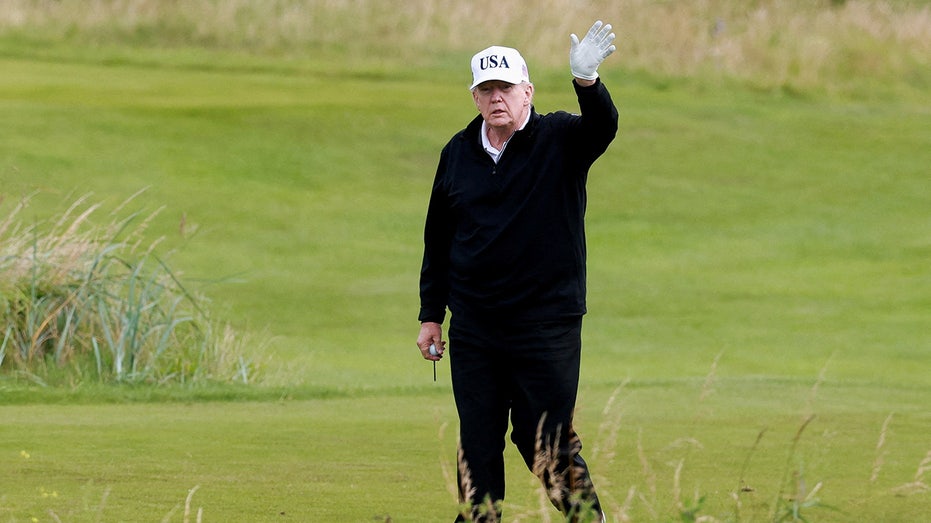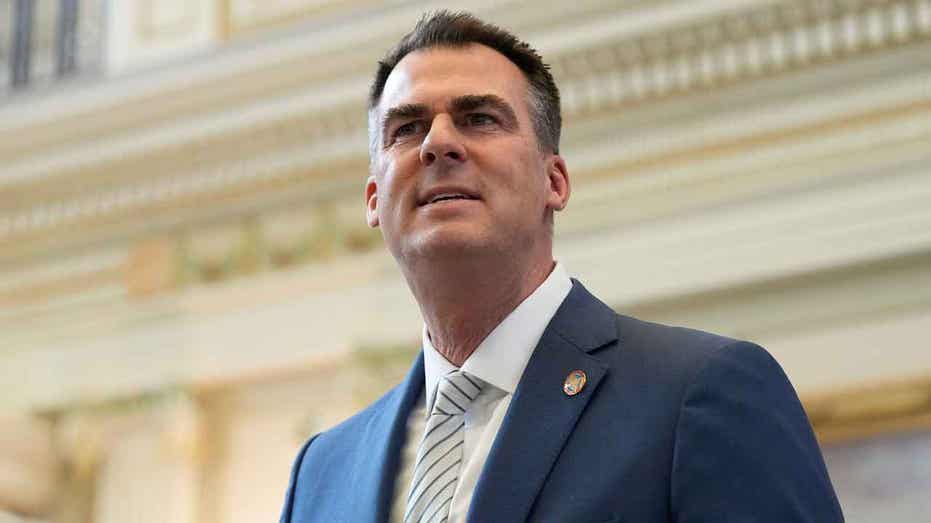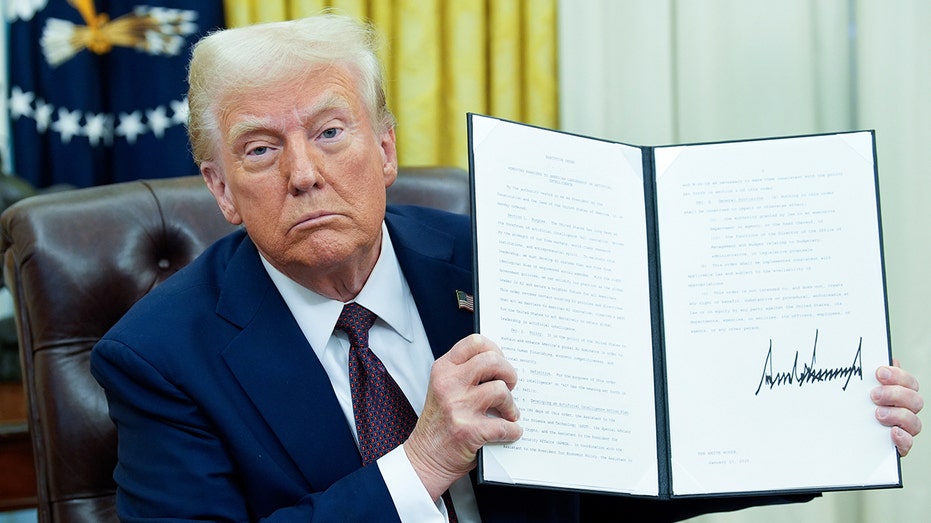📰 NYC socialist would-be mayor Zohran Mamdani throws lavish wedding bash in Uganda

Zohran Mamdani, the Democratic mayoral nominee of New York City, celebrated his recent marriage with a three-day exclusive bash in Uganda, complete with masked military security and a cellphone jamming system at his family’s private compound. Mamdani eloped with illustrator Rama Duwaji earlier this year and the party was strictly invite-only. Mamdani announced his trip to Uganda on social media to celebrate his marriage, which coincided with the mourning period for former Ugandan Supreme Court Judge George Kanyeihamba. The celebration included music, food, and dancing, with Mamdani’s personal security taking over after the military guards left. Mamdani’s family’s home in Uganda is in a wealthy area with notable neighbors, and the U.S. State Department advises caution when traveling to Uganda due to security risks.
📰 Trump calls for immediate ceasefire between Cambodia and Thailand amid escalating violence

President Trump recently spoke with the leaders of Cambodia and Thailand, urging a ceasefire and stating that the U.S. will not resume trade discussions until the fighting stops. Both countries are seeking an immediate ceasefire and hope to return to the trading table with the United States once peace is achieved. Border clashes between Thailand and Cambodia have resulted in casualties and displaced individuals, with tensions escalating after a landmine incident. The U.N. Security Council and ASEAN have called for de-escalation and a peaceful resolution to the conflict. Human Rights Watch has emphasized the importance of protecting civilians amidst the ongoing violence between the two nations.
📰 Texas congressional candidate dragged out, arrested after explosive redistricting hearing: ‘It is a shame!’

A Democratic congressional candidate, Isaiah Martin, was forcibly removed and arrested during a redistricting hearing at the Texas Capitol after defying warnings to stop speaking. Martin accused Texas Republicans of rigging the redistricting process to please President Donald Trump, leading to his arrest on charges of resisting arrest, criminal trespass, and disrupting a public meeting. After being released from jail, Martin thanked supporters and vowed to keep speaking out against the redistricting process. He criticized the timing of the process following a mass casualty event and accused Republicans of gerrymandering at Trump’s request. Despite the disruption caused by Martin, the committee resumed without addressing the incident, and the redistricting effort in Texas continues amid calls for additional Republican House seats by Trump.
In summary, tensions escalated at the Texas Capitol during a redistricting hearing as Democratic candidate Isaiah Martin was arrested for refusing to stop speaking out against alleged Republican gerrymandering. Martin’s accusations included claims of rigging the process to please Trump and criticized the economic issues in Texas. Despite being removed from the hearing, Martin vowed to continue his advocacy. The redistricting process in Texas has faced scrutiny for potential racial gerrymandering, with Trump pushing for additional Republican House seats. The map remains incomplete as hearings continue in different cities.
📰 Incoming NGA Chair ‘disappointed’ in Dem governors ‘playing politics’ in bipartisan group

Gov. Kevin Stitt, incoming chair of the National Governors Association (NGA), expressed disappointment that some Democratic governors, including Govs. Tim Walz and Laura Kelly, may stop paying their dues to the NGA due to disagreements over the organization’s response to President Trump’s second term. Stitt criticized the politicization of the NGA, emphasizing the importance of bipartisan cooperation among governors. The Democratic discontent is highlighted by Gov. Jared Polis of Colorado stepping down as chair to be succeeded by Stitt, a Republican, with Gov. Wes Moore set to become vice chair. Stitt urged for constructive dialogue and problem-solving among governors, despite political differences, to address key issues like the national debt. The NGA’s communications director emphasized the organization’s bipartisan nature and commitment to consensus-building, amid concerns of political divisions within the group.
In summary, the article discusses the tensions within the NGA as some Democratic governors consider withholding dues over disagreements related to President Trump’s administration. Gov. Stitt emphasizes the importance of bipartisan cooperation and constructive dialogue among governors. The upcoming leadership transition within the NGA from Gov. Polis to Gov. Stitt reflects the political dynamics at play. The article highlights the challenges of maintaining bipartisan consensus within the NGA amidst political differences. Overall, the NGA faces internal divisions as it navigates political tensions and strives to uphold its bipartisan principles.
📰 FTC firings take spotlight in Trump’s fight to erase independence of agencies

In the ongoing legal battle over President Trump’s authority to fire Democrat-appointed members of independent agencies, the case of Slaughter v. Trump is seen as having significant implications. The case involves a Biden-appointed member of the Federal Trade Commission challenging her firing, potentially leading to a Supreme Court decision on the president’s power over such agencies. Constitutional law expert John Shu believes the Supreme Court is likely to side with the president in this case. The historical context of Humphrey’s Executor v. United States, a precedent limiting a president’s removal power over independent regulatory agencies, is being reevaluated in light of the changing roles and functions of agencies like the FTC. Recent Supreme Court decisions suggest a trend towards making agencies like the FTC less independent and more accountable to the president, raising questions about the future of agency independence.
The legal battle surrounding the firing of Democrat-appointed members of independent agencies by President Trump, particularly in the case of Slaughter v. Trump, is shaping up to be a significant test of presidential authority over such agencies. The evolving functions of agencies like the Federal Trade Commission are being considered in the context of historical precedents like Humphrey’s Executor v. United States. Recent Supreme Court decisions indicate a willingness to revisit and potentially reverse long-standing precedents regarding presidential power over independent agencies. The case of Slaughter and Bedoya, two Democratic-appointed members of the FTC who were fired by Trump, highlights the tension between agency independence and presidential authority. The legal battle between Slaughter and the Trump administration is ongoing, with implications for the transparency and accountability of independent agencies.
The legal dispute over President Trump’s authority to fire Democrat-appointed members of independent agencies, particularly in the case of Slaughter v. Trump, raises important questions about the balance of power between the president and regulatory agencies like the Federal Trade Commission. The evolving functions of agencies like the FTC, which now have expanded roles beyond their original mandates, are complicating the interpretation of historical precedents like Humphrey’s Executor v. United States. Recent Supreme Court decisions suggest a trend towards reducing agency independence and increasing presidential control over regulatory bodies. The case of Slaughter and Bedoya, who were fired by Trump without cause, underscores the ongoing debate over the limits of presidential power in relation to independent agencies. The legal battle between Slaughter and the Trump administration highlights the broader implications for the autonomy and accountability of regulatory agencies.
The legal battle over President Trump’s authority to fire Democrat-appointed members of independent agencies, particularly in the case of Slaughter v. Trump, is raising complex questions about the relationship between the executive branch and regulatory bodies like the Federal Trade Commission. The historical precedent of Humphrey’s Executor v. United States, which limited a president’s power to remove commissioners from independent agencies without cause, is being reevaluated in light of the changing landscape of regulatory functions. Recent Supreme Court decisions indicate a willingness to revisit and potentially overturn long-standing precedents regarding presidential authority over independent agencies. The case of Slaughter and Bedoya, who were fired by Trump in a manner reminiscent of historical conflicts over agency independence, highlights the ongoing struggle between presidential control and agency autonomy. The legal battle between Slaughter and the Trump administration underscores the broader implications for the independence and accountability of regulatory agencies.
The legal dispute surrounding President Trump’s authority to dismiss Democrat-appointed members of independent agencies, particularly in the case of Slaughter v. Trump, is a significant test of the balance of power between the executive branch and regulatory bodies like the Federal Trade Commission. The case raises important questions about the interpretation of historical precedents like Humphrey’s Executor v. United States in the context of the evolving functions of modern regulatory agencies. Recent Supreme Court decisions suggest a trend towards reducing the independence of agencies like the FTC and increasing presidential control over their operations. The case of Slaughter and Bedoya, who were fired by Trump without cause, highlights the ongoing debate over the limits of presidential power in relation to independent agencies. The legal battle between Slaughter and the Trump administration has broader implications for the autonomy and accountability of regulatory agencies in the future.
0개의 댓글